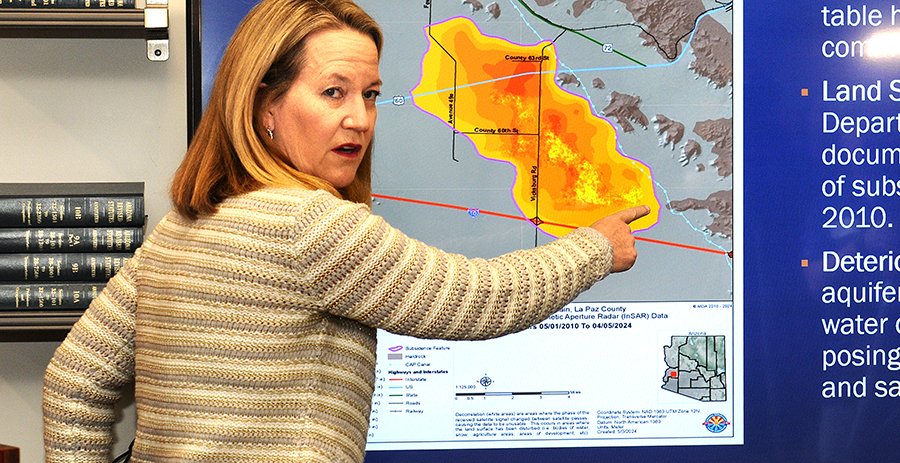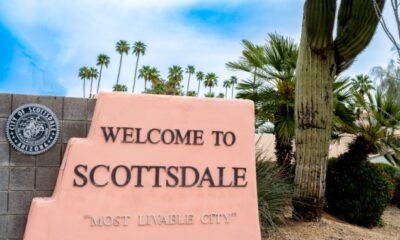Fashion
Mayes Takes Legal Action Against Saudi Farm for Exploitative Groundwater Practices

Arizona Attorney General Kris Mayes has initiated a legal battle aimed at curbing groundwater extraction by Fondomonte LLC, a subsidiary of a Saudi company. The firm operates alfalfa farms in western Arizona, and the lawsuit, filed on December 11, alleges that the company has caused a “public nuisance” by depleting local groundwater resources, resulting in neighboring wells running dry and land subsidence in La Paz County.
The complaint asserts that Fondomonte’s practices not only threaten water availability but also degrade water quality. Mayes’s argument hinges on the assertion that, despite Fondomonte’s operations falling outside of regulated “active management areas,” they are harming local communities and should be subject to nuisance claims under state law.
Mayes has highlighted a broader legislative failure to address the ongoing water crisis in Arizona, particularly in the Ranegras Basin, where Fondomonte conducts its farming. She contends that the company’s activities may have taken advantage of the state’s inadequate protective measures regarding groundwater conservation.
Mayes seeks a ruling from Maricopa County Superior Court Judge Scott Minder that would bar Fondomonte’s current practices and compel the company to establish a fund to compensate affected residents. Attorney General Mayes emphasized, “Arizona law is clear: No company has the right to endanger an entire community’s health and safety for its own gain.”
In response, Fondomonte plans to challenge the lawsuit, claiming that it adheres to all existing regulations. Spokesman Barrett Marson labeled the nuisance allegations as “totally unfounded,” arguing that they could set a dangerous precedent for agricultural practices in the state.
The case’s outcome may hinge on interpretations of Arizona’s nuisance law, which allows courts to limit practices that severely impact community health or safety. Despite the legal murkiness, Mayes asserts that evidence exists of serious consequences stemming from Fondomonte’s water usage, which reportedly amounts to 31,196 acre-feet in a single year—enough for approximately 93,000 households.
Testimonies from those within the community point to alarming developments, including the drying up of local wells, and even significant land subsidence. Mayes noted that a well less than a mile from Fondomonte’s operations became nonviable five years ago, with a church’s well similarly affected in 2017.
While Mayes seeks to establish legal grounds for the nuisance claim, she acknowledges that others may share in these detrimental impacts. She warned that Fondomonte is not isolated in its actions, hinting at potential future litigation targeting other agricultural entities, particularly Riverview Dairy in Cochise County.
Despite the challenges ahead, Mayes continues to advocate for legislative action to regulate water use in areas lacking oversight. Her sentiments were echoed by local officials, including La Paz County Supervisor Holly Irwin, who criticized the state legislature for inaction regarding water resource management.
Irwin remarked, “That is why we are seeing foreign companies come over to these areas, purchase land and pump water out so that they can supplement their alfalfa and send it back home.” She praised Mayes for addressing pressing issues affecting local communities, including well depletion and land instability.
As discussions over water regulations continue to stall due to differing interests between agricultural and rural communities, Mayes and other advocates underscore the urgency of resolving these critical water management issues. The future of large-scale agriculture in Arizona remains a contentious topic, prompting ongoing debates about sustainability and resource conservation.


















